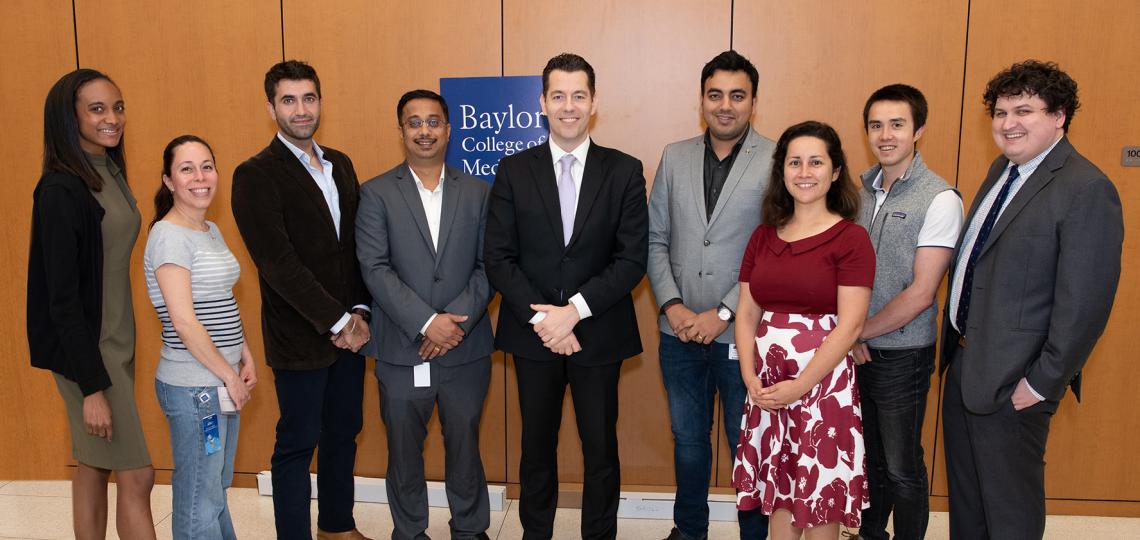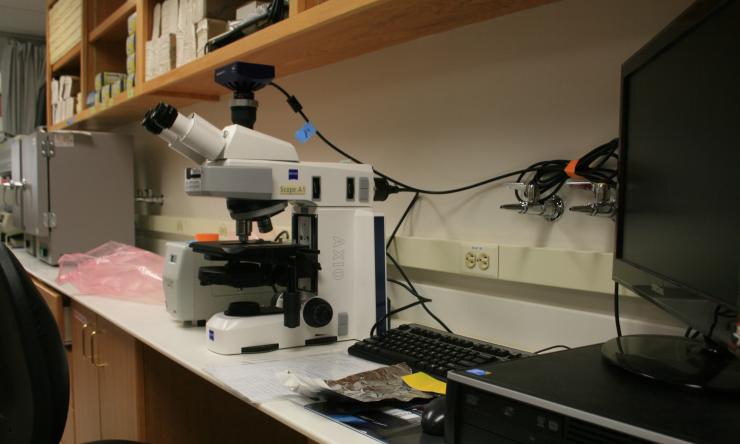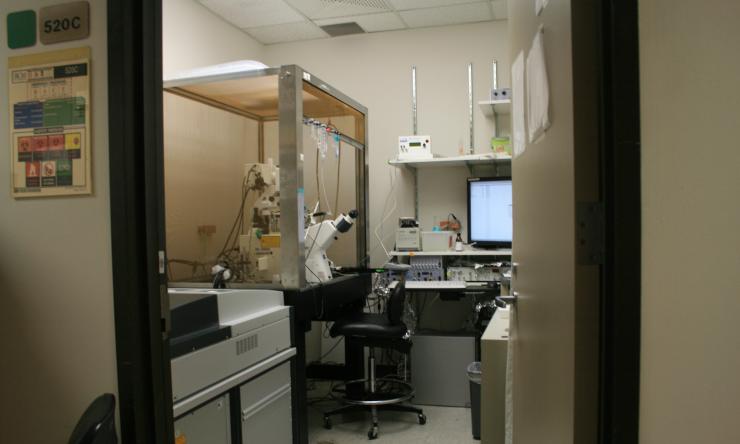
About the Lab
Current major projects in the lab focus on the molecular basis of inherited arrhythmia syndromes like catecholaminergic polymorphic ventricular tachycardia (CPVT), congenital long QT syndrome (LQTS), and Wolff-Parkinson-White syndrome (WPW), as well as other more complex, multifactorial cardiac diseases like atrial fibrillation and hypertrophic cardiomyopathy. These translational studies are aimed at developing new therapeutic targets for heart disease.
Proper contraction and relaxation of the heart depends on the coordinated flux of calcium ions in and out of individual cardiac muscle cells. Research in our lab focuses on understanding how these calcium dynamics are regulated in normal and diseased hearts, and how abnormal intracellular calcium release may contribute to the development of cardiac arrhythmias, hypertrophy, and heart failure.
We are particularly interested in the genetic and posttranslational regulation of key molecules involved in intracellular calcium handling, including the ryanodine receptor type 2 (RyR2), striated muscle preferentially expressed protein kinase (SPEG), junctophilin-2 (JPH2), and nucleoside-diphosphate kinase (NDPK). In addition, we study the paracrine signaling interactions between cardiac fibroblasts and myocytes, and their role in profibrotic signaling.
New therapies in development include small molecule inhibitors of the RyR2 calcium release channel and gene therapy vectors for CRISPR/Cas9-mediated genome editing.

Zeiss Axio Scope
Our Zeiss Axio Scope is for used for histology to view the microscopic anatomy of biological tissues.

Confocal Microscope
This lab room is dedicated for our Carl Zeiss LSM 880 laser scanning confocal microscope.
Funding Support
- R01 HL089598 Ryanodine receptor regulation in post-operative atrial fibrillation
- R01 HL147198 Mechanisms underlying atrial fibrillation associated with chronic kidney disease
- R01 HL153350 Junctophilin-2 cleavage in ischemic heart disease
- R01 HL160992 Role of Nucleoside-Diphosphate Kinase signaling in atrial fibrillation
Fellowship Support
In addition, lab members are supported by fellowships from:
- American Heart Association
- NIH/NHLBI
- Heart Rhythm Society
What’s at the ‘heart’ of a heartbeat?
The laboratories of Dr. Xander Wehrens at Baylor College of Medicine and Dr. Stephan Lehnart at the University of Goettingen in Germany are making headway into understanding the molecular mechanisms that underlie atrial fibrillation.
Preventing sudden cardiac death with genome editing
Dr. Xander Wehrens and his colleagues at Baylor College of Medicine study cardiac conditions, including inherited cardiac arrhythmia disorders. For this study, Dr. Wehrens teamed up with Dr. William Lagor to design a permanent treatment for catecholaminergic polymorphic ventricular tachycardia (CPVT).









 Credit
Credit
